


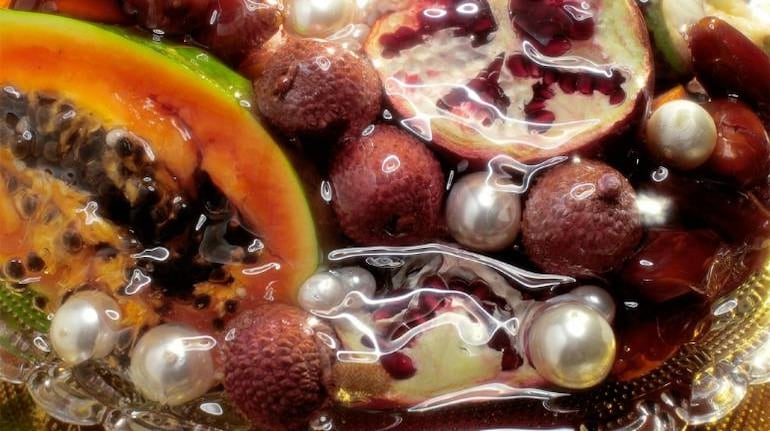
Food demand is expected to increase by anywhere between 59% and 98% by 2050. Cooking, farming and food habits - everything will change. On World Food Day, seven chefs from across the world predict what we’ll be eating in 2050.
1. Chef Scott Pickett, Melbourne
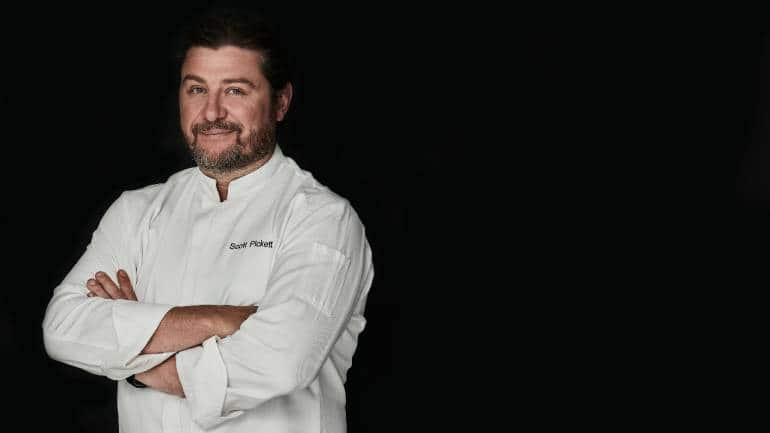 Chef Pickett's restaurants include Chancery Lane, Le Shoppe, Estelle, Matilda, Longrain.
Chef Pickett's restaurants include Chancery Lane, Le Shoppe, Estelle, Matilda, Longrain.
By 2050, we’ll be looking towards our own backyards for food - 100% organic rooftop kitchen gardens. In Australia, we'll be utilising more indigenous and ancient grains, like milling the seeds from kangaroo grass into flour to make bread. Instead of importing or growing European varieties of berries, we’ll be eating native raspberries and alpine strawberries. The importance of best practice suppliers, organic, free range produce will continue to grow. With this will come a bit of a change to the pricing structure in restaurants, venues will be charging more for their dishes.
2. Chef Abigail Mbalo-Mokoena, South Africa
Restaurants: 4-roomed eKasi, Cape Town
Eating biltong and Boerewors will continue. So will the use of the ancient method of dry curing to preserve meat - a method used by the indigenous tribes of South Africa before fridges were invented. South Africa will not forget its traditional grains and wild grasses, as many of these traditions have stood the test of time and are still grassroot staples. Maize has already been modified to a state that I do not think it provides us with the natural nutrients we are supposed to get. Maize as part of South African diet is irreplaceable but people will return to organic maize because they know that the modified corn is not providing needed nutrients.
3. Chef J.P. McMahon, Ireland
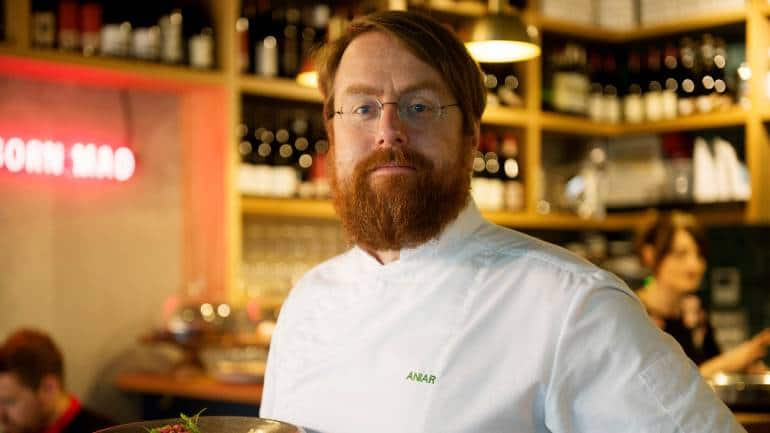 Chef McMahon's restaurant: Aniar Restaurant, Galway.
Chef McMahon's restaurant: Aniar Restaurant, Galway.
We forget that time is not only chronological, but it is also spatial. Some countries have cooked the same food for thousands of years while others have changed more rapidly. We now eat a lot more fish in Ireland, and I can only imagine this growing in the next 30 years. Seaweed is an ancient food but its consumption resides in the future. I hope that in Ireland seaweed and our shellfish industry will be much more appreciated at home. Processed food will become more processed and meat will be grown in laboratories. But I would welcome a few more wild black ants on our food. Ants and oysters, anyone?
4. Chef Govinduth Rumon, Mauritius
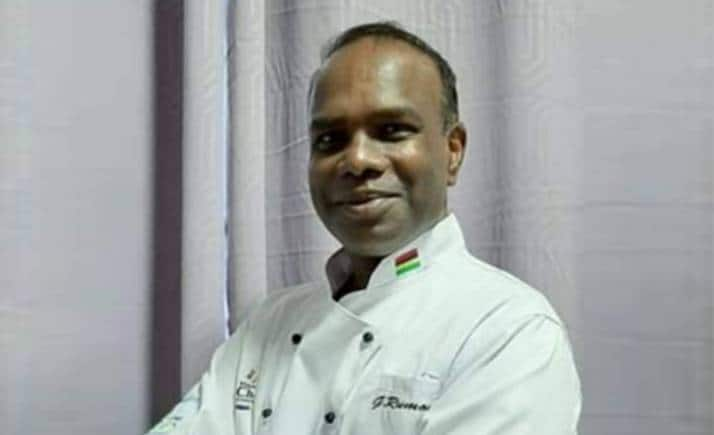 Chef Rumon is the director of Young Chefs of Mauritius Chefs Association.
Chef Rumon is the director of Young Chefs of Mauritius Chefs Association.
By 2050, there will be more gene-edited crops and it will trigger a much wider variety of crops being grown. Most of the proteins will come from plant-based source such as tofu, lentils, algae, chickpeas, peanuts, almonds, chia seeds and potatoes. Algae that contains more calcium, protein, iron, vitamins, minerals, fibre and antioxidants than any known fruit or vegetable could be the food of the future. The aquatic plants will be farmed in pools just like fish. A London-based seaweed-tech startup has a plan to substitute plastic bottles with edible water bottles made with seaweed. Once on the market, this package can be used for other liquids such as spirits and cosmetics. Seaweed as a packaging material is actually cheaper than plastic and will become the go-to packaging material.
Read more: Plant-based meat: The healthy, green kid on the block?
5. Chef Moshe Basson, Israel
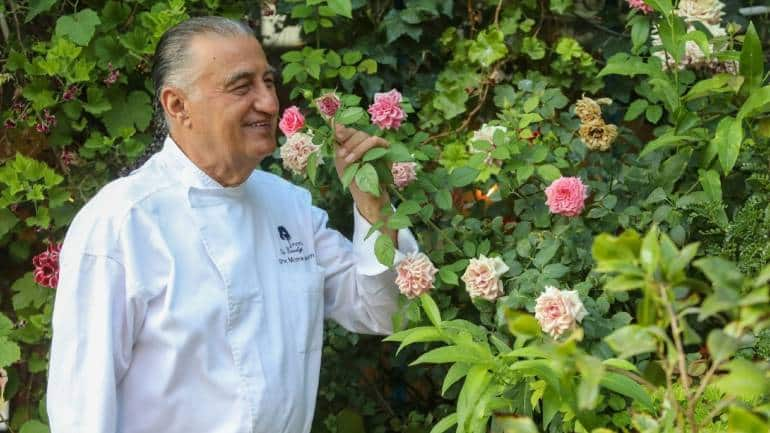 Chef Moshe's restaurant: The Eucalyptus (Jerusalem).
Chef Moshe's restaurant: The Eucalyptus (Jerusalem).
The consumption of meat products will need to be reduced both for ecological and humane reasons. I am so proud that Israel is at the forefront of using technology to find ways to substitute meats with sustainable and healthy options, including farming locusts, generating meat grown in labs and using plant-based protein to create products even top chefs have a hard time finding the difference from actual meat. Furthermore, more and more urbanised areas will start to utilise incredible farming technologies that are already available to grow crops that do not need to be transported. We already have rooftop and garden crops grown in cities that leave almost no carbon footprint. Seasonality and local soil types will be the main consideration in planting, and techniques such as hydroponics will become more common.
6. Chef Edison John Maina, Kenya
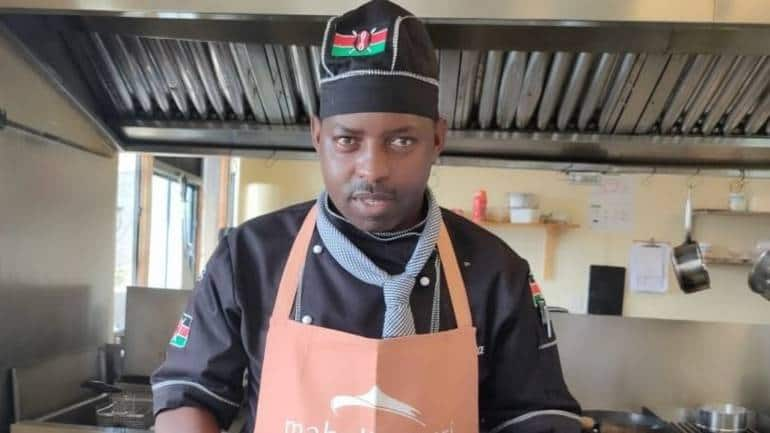 Richard Branson Mahali Mzuri Camp, Maasai Mara." width="770" height="433" /> Chef Edison works at the Sir Richard Branson Mahali Mzuri Camp, Maasai Mara.
Richard Branson Mahali Mzuri Camp, Maasai Mara." width="770" height="433" /> Chef Edison works at the Sir Richard Branson Mahali Mzuri Camp, Maasai Mara.
In 2050, in Kenya, we will have more of peanuts, berries, algae, genetically-modified foods. Consumption of nuts, fruits, vegetables, salads, seeds and legumes will have doubled in comparison with that of conventional meats, dairy, sugar and white meat that will have dwindled by half. The fruits/vegetables will include berries, peanuts (nut of the future), pumpkin and algae. Other alternatives will be buying readymade food, soaking and eating food like rice and noodles and sonic-enhanced meals. Corn will be available but will have evolved to genetically-modified and sonic-enhanced corn. There will also be corn that grows and cooks in a very short time.
7. Chef Sahil Arora, India
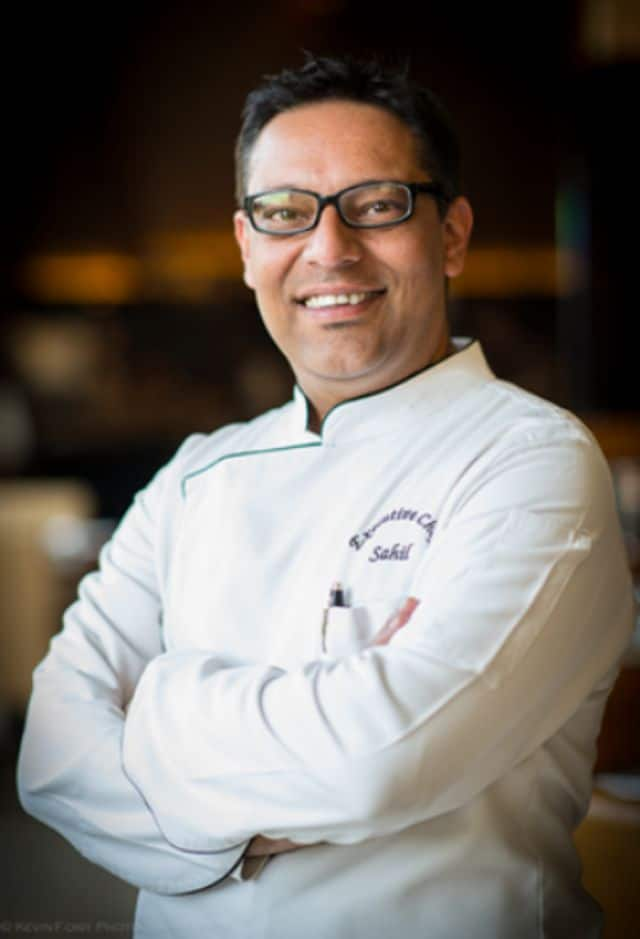 Chef Arora works at the Hyatt Regency, Dehradun.
Chef Arora works at the Hyatt Regency, Dehradun.
Travel 30 years ahead and think high-rise vertical gardens, undersea farming, microbes on the dinner plate and 3D food printers. Nearly hundred 30-storey vertical gardens will be enough to feed the current population of Mumbai. Artificial intelligence apps will help us eat according to the needs of our body. With IoT Smart kits, we will grow vegetables and fruits in our balconies. Microbial nutritional value will come into play into packaging; mock meat, algae and microbes will be the food of the future.
The Future of Food Banquet at Dubai Expo
Before stepping into Dubai Expo 2020 (October 1, 2021 to March 31, 2022), glug a zippy palate cleanser, master terms like luminescence, transgenic, iridescence, decipher ‘Novacene’, nudge out all food clichés and imagine glowing broth, interstellar cocktails, aerogel meringues. This is no ordinary banquet. Think 2320. This banquet is a 300-year journey into the future of food.
Called The Future of Food: Epochal Banquet, this two-hour, 3-course culinary experience is inspired by space, microbiology, artificial intelligence and hyperintelligence. Cooked up by UK-based multi-sensory experience design studio Bompas & Parr, in collaboration with Expo 2020, this immersive experience includes, among other things, shiitake and kow choi dumplings in a luminescent seaweed broth, vegan bone marrow with burnt butter, a flavour-changing jelly dessert, with an iridescent knafeh iced sphere and botanicals.
Banquet cost: Starts at Rs 17,000+ per person. VIP dinner for 6-10 guests is priced at Rs 2,41,165. Book tickets at www.expo2020dubai.com
Discover the latest Business News, Sensex, and Nifty updates. Obtain Personal Finance insights, tax queries, and expert opinions on Moneycontrol or download the Moneycontrol App to stay updated!
Find the best of Al News in one place, specially curated for you every weekend.
Stay on top of the latest tech trends and biggest startup news.